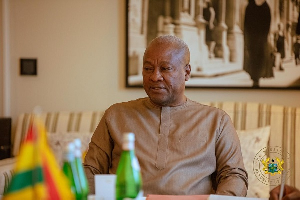A project to develop research capacity across institutions that are self-sustaining and focused on improving food and water security for the poorest of society has begun.
The project dubbed: “Building Research Capacity for sustainable water and food security in dry lands of Sub-Saharan Africa (BRECcIA),” is a four-year initiative (2018-2021) being implemented by the School of Public Health and the Regional Institute for Population Studies (RIPS) of the University of Ghana with funding from the United Kingdom Government through its Global Challenges Research Fund (GCRF).
The project is also to strengthen research capacity and capabilities in institutions in Ghana, Malawi and Kenya to carry out impactful research that leads to positive policy for sustainable water and food security, which will have benefits for the people living in the Sub-Saharan Africa dry lands.
Dr Mawuli Dzodzomenyo, Senior Lecturer at the School of Public Health, University of Ghana, and Co-Investigator on the BRECcIA project, who gave the details of the project at a stakeholders’ inception workshop in Tamale on Tuesday, said it would deliver impact through a programme of capacity development, partnership building and targeted research in sustainable water and food security.
The stakeholders’ inception workshop was to introduce and discuss the project with relevant stakeholders, ensuring widespread understanding of the goals, potential outcome for institutions, and the crucial role stakeholders must play for goals to be achieved.
It was also to identify research questions in the areas of existing research and policy gaps, existing barriers to food and water security in the dry lands, community priorities in dry land areas amongst others to help influence policy.
Local government authorities, non-governmental organizations, research institutions and the media were represented at the workshop to ensure that local priorities and knowledge were captured.
Dr Dzodzomenyo said climate variability was impacting water and food security in dry land areas in the Sub-Saharan Africa affecting many lives, hence the collaborative research work across disciplines, institutions and countries to influence policy for sustainable water and food security.
Dr Godfred Seidu Jasaw, Deputy Director at the Kazuliko Takeuchi Centre for Sustainability and Resilience (KTCSR), University for Development Studies, Nyankpala and Wa Campuses lauded the project as it would enhance research capabilities of institutions towards finding relevant solutions to societal challenges.
Regional News of Wednesday, 28 November 2018
Source: ghananewsagency.org

















